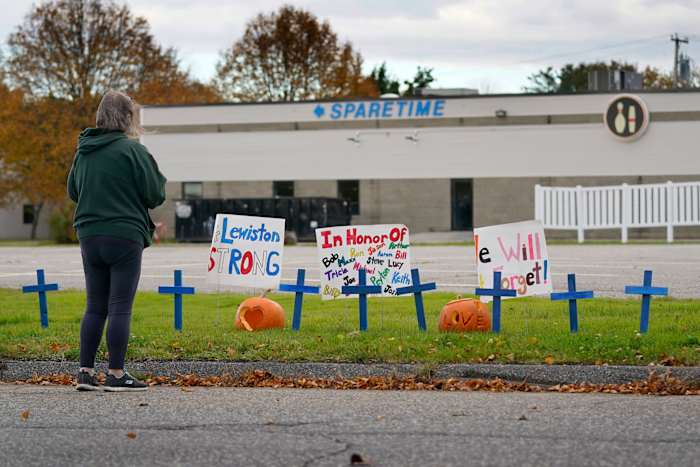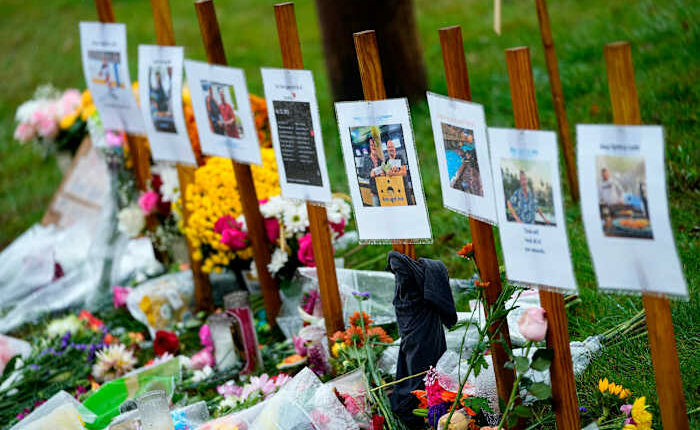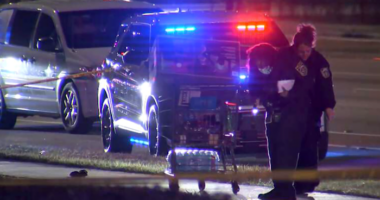Share this @internewscast.com

Survivors of Maine’s most fatal mass shooting, along with the victims’ families, have filed a lawsuit against the federal government. They assert that the U.S. Army had the means and obligation to prevent the attack carried out by one of its reservists, which they describe as a highly avoidable mass tragedy.
In October 2023, Robert Card killed eighteen people at a bowling alley and a bar and grill. An independent commission, appointed by Maine’s governor, determined that both Army officials and local law enforcement missed several opportunities to intervene as Card’s mental health worsened. Card died by suicide two days following the attack.
The lawsuit, filed in federal court and including over 100 survivors and family members of the deceased, claims negligence by the U.S. government, asserting that its actions “directly and proximately caused the mass shooting.” The allegations state that Army personnel “failed to act reasonably, broke the promises made to Card’s family and their community, violated mandatory policies, procedures, and ignored directives and orders.”
The lawsuit details that by March 2023, U.S. personnel were aware of Card’s paranoia, delusions, violent tendencies, and lack of impulse control. The Army knew about his access to firearms and had promised to disarm him but failed to do so, the lawsuit argues. Furthermore, the Army’s actions and inactions allegedly misled local law enforcement, preventing intervention and the removal of Card’s weapons.
Attorneys plan to provide more details Wednesday at a news conference in Lewiston, not far from where the shootings took place.
Less than a year ago, attorneys initiated this legal process by filing notices of claim, faulting the Army for not acting despite being aware of Card’s deteriorating mental health. His mental decline led to hospitalization, paranoia, delusions, and violent threats, including a “hit list” of targeted individuals, according to the attorneys.
Card’s family and fellow reservists noted his erratic, paranoid behavior months before the shootings. He was hospitalized during Army training in July 2023 while his unit was in New York training West Point cadets. However, Army Reserve officials conceded that no one ensured Card adhered to his medication regimen or continued his follow-up care after returning home to Bowdoin, Maine.
The starkest warning came in a September text from a fellow reservist: “I believe he’s going to snap and do a mass shooting.”
“From the start, the Army disregarded its mandatory policies and procedures, and regulations when dealing with Card,” the lawsuit states. “Despite the serious issues Card presented at the company or battalion level, they were not reported up the chain of command to senior military officials with the knowledge, experience, and resources to address them. Instead, low-ranking, part-time personnel mis-managed the risks, resulting in disastrous consequences.”
Army officials conducted their own investigation after the shootings that Lt. Gen. Jody Daniels, then the chief of the Army Reserve, said found “a series of failures by unit leadership.” Three Army Reserve leaders were disciplined for dereliction of duty, according to the report. When the governor’s commission released its final report last August, the Army issued a statement saying it was “committed to reviewing the findings and implementing sound changes to prevent tragedies like this from recurring.”
The Lewiston shootings led to new guns laws in Maine, a state with a long tradition of hunting and gun ownership. The laws prompted legal action on the part of gun rights advocates in the state and remain a contentious topic nearly two years after the shootings.
Copyright 2025 The Associated Press. All rights reserved. This material may not be published, broadcast, rewritten or redistributed without permission.









